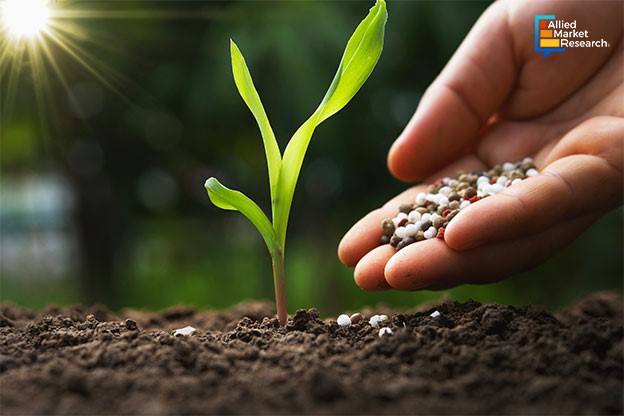Biological Organic Fertilizers: Sustainable Soil Additives for Eco-friendly Agriculture

7 Apr
2025
Key takeaways:
- Introduction
- Advantages of biological organic fertilizers
- Product launches in the industry
Since the Green Revolution in the 1960s, the use of chemical fertilizers has grown exponentially in the last few decades. The primary aim of using these synthetic chemicals was to enhance nutrient availability to crops, thereby increasing crop yield in a short span of time. Chemical fertilizers offered a cost-effective mechanism to boost farm productivity in regions with irregular rainfall and minimal irrigation facilities. Also, in areas with severe land degradation, these additives improved soil fertility, boosting agriculture. Over the years, chemical fertilizers have played an important role in addressing challenges related to food insecurity, ultimately improving the availability, accessibility, and affordability of food grains across the globe. However, in recent times, the environmental hazards associated with the overuse of these chemical soil additives have become apparent, increasing the demand for biological organic fertilizers.
Increasing emphasis on sustainability driving the industry’s growth
One major problem with respect to the use of chemical fertilizers is that their absorption in soil is quite less as a result of which they easily get washed away during rainy seasons. The surface runoffs containing these chemical additives get mixed with lakes, ponds, and reservoirs, polluting the entire ecosystem and disrupting the biodiversity present there. Several environmental studies, for instance, have shown that the continuous addition of chemical fertilizers in these water bodies has led to the problem of eutrophication or algal bloom, in which these aquatic plants take up all the dissolved oxygen in the lakes, thus killing fish and other animals.
On the other hand, biological organic fertilizers are completely eco-friendly and in fact, improve biodiversity by promoting the growth of different microbes in soil. A study conducted by the Organic Trade Association highlighted that organic manures and composts aid in increasing species biodiversity in soil by around 30% as compared to chemical additives. Moreover, the use of biological organic fertilizers helps improve the overall soil structure and enhance the water-holding capacity of the land. This enables plants to extract nutrients from the soil more easily, thereby boosting their growth. Furthermore, the humic acid and enzymes provided by these sustainable fertilizers make them resistant to pests and diseases, reducing the need to spray chemical insecticides and herbicides.
Increasing investments by multinational companies helping the industry flourish
The biological organic fertilizer industry accounted for $8.9 billion in 2024 and is predicted to gather a revenue of $21.8 billion by 2033, citing a CAGR of 10.6% during 2025-2033. The launch of innovative products by several leading players in the market has contributed to the expansion of the sector in recent times. For instance, in July 2024, Terraplant, a Brazilian fertilizer company, unveiled MinerOxi+, the first ever 3-in-1 organomineral fertilizer in Brazil. Designed specifically for the naturally acidic soils found in the region, this product helps correct the pH, neutralizes the toxic aluminum minerals present, and enhances the number of oxides present in the soil substrate.
Similarly, in January 2025, Super Crop Safe Ltd., an agrochemicals supplier, announced the launch of a revolutionary product, Super Gold WP+. The solution has been designed using inoculant mycorrhiza which provides all the essential nutrients required for crop growth, thus reducing the dependence on chemical fertilizers. The product has been specifically developed to support plant root growth by improving nutrient absorption capabilities.
In conclusion, the growth of the biological organic fertilizers industry is attributed to the growing environmental hazards caused by the overuse of chemical soil additives. Furthermore, the various advantages offered by organic composts and manures have increased their popularity in the agriculture sector, thus expanding the scope of the market in recent times.
For more insights on the latest trends and advancements in the industry, contact our experts, here!

Akhilesh Prabhugaonkar
Author's Bio- Akhilesh Prabhugaonkar holds a bachelor’s degree in Electronics Engineering from the reputed Vishwakarma Institute of Technology. He has a special interest in the fields of forensics, world history, international relations and foreign policy, sports, agriculture, astronomy, security, and oceanography. An ardent bibliophile and melophile, Akhilesh loves to write on topics of his interest and various other societal issues. This love for writing made him enter the professional world of content writing and pursue his career in this direction.
Avenue: Entire Library membership of Allied Market Research Reports at your disposal
- Avenue is an innovative subscription-based online report database.
- Avail an online access to the entire library of syndicated reports on more than 2,000 niche industries and company profiles on more than 12,000 firms across 11 domains.
- A cost-effective model tailored for entrepreneurs, investors, and students & researchers at universities.
- Request customizations, suggest new reports, and avail analyst support as per your requirements.
- Get an access to the library of reports at any time from any device and anywhere.
Related Post
-
How are Submarine Cables Transforming Global Connectivity with Enhanced User Experience?
-
Endoscopy Procedures: Transformations in Techniques and Applications
-
AI-Powered Video Analytics: How the Product Actually Works for enterprises
-
Painting Robots: Transforming Precision Coating and Creative Applications
-
Innovations in Pharmacovigilance Systems Advancing Patient Safety
-
Understanding Edge Security: Keeping Data Safe Near the Source
-
Exploring the Use and Advancements of 3D Laser Scanners in Professional Applications
-
Reinforcing Industrial Controls with Smarter Tools and Training








